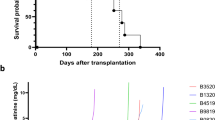Abstract. It has been more than a decade since the last clinical trial of cardiac xenotransplantation in a newborn infant. Since that event, laboratory research at Loma Linda University has focused on survival studies of orthotopically xenografted juvenile baboon recipients. Both concordant and discordant donor species have been used. Transgenic donors have not been explored at Loma Linda. Instead, simplified host immunoregulative protocols, consistent with those used in neonatal cardiac allografting, have been adapted to xenotransplant research. Xenograft bridge to alloengraftment was evaluated in a series of five juvenile baboon recipients. Heterotopically implanted cardiac xenografts stimulated host production of xenoreactive antibody. Orthotopic cardiac allografting was then carried out. Xenoantibody appeared to play little role in immediate or chronic survival of experimental hosts. A clinical protocol of xenobridging to allotransplantation would likely succeed. Two consecutive series of orthotopically xenotransplanted hosts using rhesus monkey cardiac donors demonstrated unprecedented long-term survival. Splenectomy combined with maintenance therapy consisting of FK-506 and methotrexate contributed to survival of up to 502 days in one series of xenografted baboon hosts selected for ABO blood grouping, mixed lymphocyte culture, and crossmatch compatibility. Survival beyond a year (maximum 515 days) among three consecutive juvenile baboon recipients of orthotopically implanted rhesus monkey hearts, in which splenectomy was omitted and cyclosporine was substituted for FK-506, represents a benchmark achievement. Commencing maintenance immunosuppression several weeks prior to transplantation appeared to improve chronic survival significantly. Investigation of discordant (pig-to-baboon) host survival has focused on adsorption of naturally occurring xenoreactive antibody at the time of transplantation. This strategy, combined with pretransplant total lymphoid irradiation and both pre- and posttransplant immunosuppression, succeeded in preventing hyperacute rejection and resulted in survival of up to 24 days, thereby permitting observation of the delayed xenograft rejection phase. Data support consideration of additional clinical trials of concordant neonatal cardiac xenotransplantation and offer promise for the development of discordant xenotransplantation as an ultimate therapeutic resource.
Similar content being viewed by others
Author information
Authors and Affiliations
Rights and permissions
About this article
Cite this article
Bailey, L., Gundry, S. Survival following Orthotopic Cardiac Xenotransplantation between Juvenile Baboon Recipients and Concordant and Discordant Donor Species: Foundation for Clinical Trials. World J. Surg. 21, 943–950 (1997). https://doi.org/10.1007/s002689900331
Issue Date:
DOI: https://doi.org/10.1007/s002689900331




